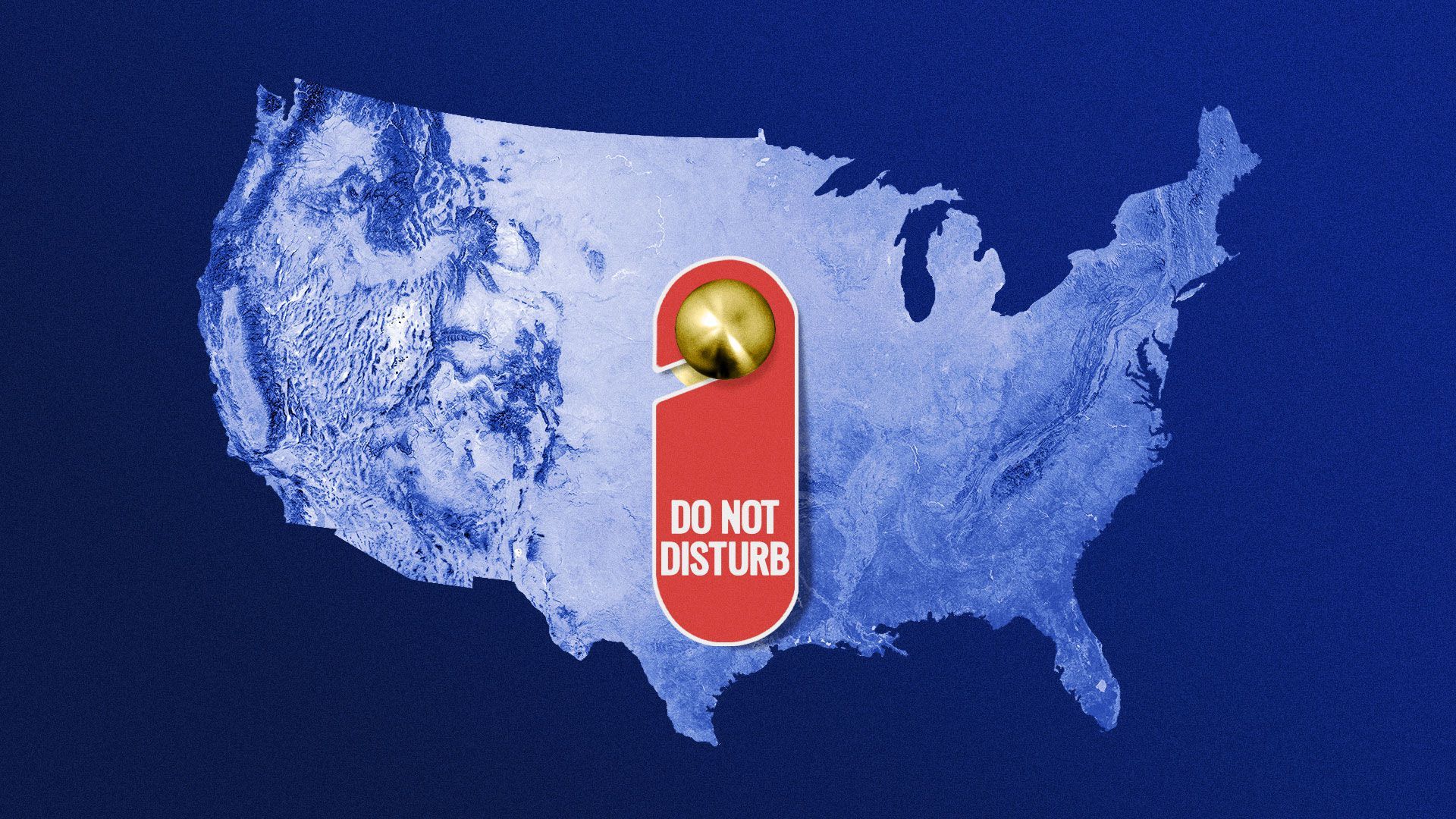The coronavirus shatters the tourism economy
Add Axios as your preferred source to
see more of our stories on Google.

Illustration: Eniola Odetunde/Axios
The coronavirus has already changed consumers' willingness to travel, and the fallout will wreak havoc on hospitality workers and places that rely on tourism.
Why it matters: States like Hawaii and Nevada that depend on tourist dollars are seeing their economies upended with widespread unemployment and no relief in sight.
The big picture: A robust era for U.S. tourism has come to a previously unthinkable halt in just weeks. No one knows how long the upheaval will last, but economists expect tourism will look different once the country fully emerges from lockdown.
- "I'm only really booking now for very advanced bookings," for late this year and next year, Bruce Fisher, who's owned travel agency Hawaii Aloha Travel for 20 years, tells Axios.
- The unemployment rate in Hawaii has been lower than the national average in recent years. But Peter Fuleky, a professor at the University of Hawaii Economic Research Organization, projects the job picture will suffer in the state long after the rest of the U.S. economy recovers.
- Already one-third of the workforce there has applied for jobless aid since the shutdown, among the worst in the nation.
In the long term, large numbers of workers may find their jobs in less demand. And states that are heavily tourist-dependent may try to pivot to other industries to make up crucial revenue shortfalls.
- "Tourism is going to suffer across the board, no matter where you are," Fuleky says.
- "It's not clear that since you lost your tourism job in Hawaii, now you're going to suddenly find a job in Florida, Vegas or another destination."
- One tourist mecca — Orange County, Florida, home to Disney World — may not return to pre-pandemic levels until 2023, per a forecast in the WSJ.
By the numbers: Tourism makes up 2.8% of the U.S. economy. Its presence is concentrated in certain states and counties that heavily rely on it.
- Nevada, where the Vegas Strip is still shuttered, has seen 30% of its workforce flock to unemployment.
- The Brookings Institution estimated the coronavirus recession would hit places like Las Vegas, Atlantic City and Maui the hardest.
Even for consumers willing to take a vacation, companies and states plan to purposely choke demand — by capping crowds — for safety reasons.
- MGM Resorts said it plans to reopen with only 25% of its rooms available for booking; Caesars Palace will deactivate every other slot machine and allow half as many players at its blackjack tables.
- Fisher, of Hawaii Aloha Travel, also operates a local tour bus company, which he says will go out of business once its support from a Paycheck Protection Program loan expires. "Are people really going to want to get on a tour bus with strangers?" Fisher asked.
Between the lines: Since 9/11, some tourism-dependent locations have been trying to diversify their sources of revenue, so far with seemingly little success.
- In Hawaii, one of the most expensive places in the nation to live, Honolulu City Councilor Kymberly Pine told USA Today that she and other lawmakers have warned the state that it depends too much on tourism.
- "We are going to need to prepare for a lot of people losing their homes, not being able to pay their rentals," Pyne told the paper.
- In Orlando, Florida, a campaign launched in 2014 with the tagline "You don't know the half of it" sought to depict the city as more than just a tourism destination.
- Sean Snaith, director of the University of Central Florida's Institute for Economic Forecasting, tells Axios he thinks the pandemic will make officials "double and triple their efforts in this regard."
What's ahead: Places that rely on tourists could be in for a slower recovery than those that don't.
- Travel and hospitality "may be in for a longer and more painful contraction," Patrick Harker, president of the Philadelphia Federal Reserve, said this week.
- "The knock-on effects to airlines, hotels and restaurants that cater to travelers could be severe and long lasting."
- A possible silver lining: social distancing could lead to better experiences for visitors at local attractions because there will be “more room just for you," Fuleky says.
